
 Flash News
Flash News
Ceno Klosi with over 800 stolen votes, Balluku finds the reason is the tiredness of the counters
"Fast & Furious" in the former Block, police chase an Audi Q8, 4 cars collide
Car hits two tourists on a motorcycle in Fushe Arrëz, one of them dies
Serious accident in Thumanë, one dead, 3 injured
Durrës Court suspends the director of Pre-University Education from duty
"They don't want our wheat": Kosovo farmers say Serbia is flooding the market with old wheat
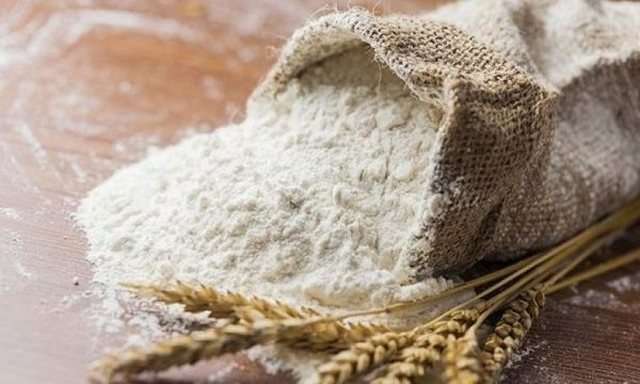
Dozens of Kosovar farmers - wheat producers - headed to Pristina on Wednesday to protest in front of the Ministry of Agriculture, Forestry and Rural Development.
The reason? The low price - only 17-18 cents per kilogram of wheat - which, according to them, has been set by local millers, who are also the main buyers of their products.
"We are protesting about the price and the mess they are making, mainly the millers," Genc Mazreku, a farmer from Malisheva, told Radio Free Europe.
Many of his colleagues, who set off towards Pristina on tractors, were stopped by police and not allowed to enter the city, as the protest had not been officially notified to the authorities, as required by law.
Mazreku said that he has planted about 60 hectares of wheat and that this year he expects a yield of approximately 4 thousand kilograms per hectare.
But, according to him, the price being offered by the millers is extremely low.
He links this situation to the import of "old wheat" from Serbia, which, according to him, negatively affects the domestic market and the value of production of Kosovar farmers.
"Every year, when June comes, these millers go and clean the 'waste' (of wheat) in Serbia and bring it to Kosovo. The wheat from five years ago, from Serbia's reserves, comes to Kosovo and Albanians eat it. The wheat that is harvested this year (in Kosovo), no one takes it... or they say 17 cents, 16 cents, whatever they like," Mazreku said in outrage.
Data from Kosovo Customs confirms that Serbia is one of the main countries from which wheat is imported into Kosovo.
In the period January-May of this year, wheat worth about 7.9 million euros was imported.
The majority - over 7.2 million euros - was imported from Serbia, while the rest from Hungary and Croatia.
Radio Free Europe asked the Kosovo Food and Veterinary Agency about the year of production of the imported wheat this year, but, by the time of publication of this article, it had not received a response.
Mazreku said that the millers have also increased the water tariff this year - from 18 percent, which was last year, to 24 percent.
Water is the amount of grain that the miller keeps for himself as compensation for grinding.
This means that for every 1,000 kilograms of wheat that the farmer brings in for milling, the miller receives 240 kilograms.
"They trample on the farmer wherever they can. We have nowhere to leave our reserves," said Mazreku.
The same concern was shared by Sali Ilazi, a farmer from the municipality of Ferizaj.
He has planted 127 hectares of wheat, which he considers to be of high quality.
"Last year they paid us 20 cents. Now it's 18 cents. With this price of wheat, we can't cover (the cost of production)... The real price should be 22 to 23 cents. But why take our wheat, when they can take it from Serbia... Well, it's last resort," according to Ilazi.
Bashkëvendësi i tij, Aziz Halili, i cili ka të mbjellë rreth gjashtë hektarë me grurë, u shpreh gjithashtu i pakënaqur me çmimin që ofrohet nga mullisët.
Ai e konsideron atë të padrejtë, sidomos në raport me rritjen e çmimit të bukës.
“Shoqatat e mullisëve dhe bukëpjekësit fitojnë, e prodhimi ynë, që është kryesori, shkelet”, sipas Halilit.
Në protestë ishte edhe Ferat Xhaka nga Podujeva.
Ai tha se në komunën e tij, mullisët as që pranojnë t’ia blejnë grurin.
“Nuk e marrin fare. Kanë gjetur alternativa tjera, po e sjellin nga Serbia. Doganë ka pak për grurë dhe për këto produktet e bujqësisë. Neve na shkelin”, tha ai.
Si caktohet çmimi?
Kosova nuk ka një bursë për çmimin e grurit, prandaj mullisët bazohen në çmimet rajonale, thonë nga Shoqata e Mullisëve të Kosovës.
Udhëheqësi i kësaj shoqate, Bashkim Zejnullahu, thotë për Radion Evropa e Lirë se në raste të domosdoshme, mullisët nga Kosova importojnë grurë nga Serbia, Maqedonia e Veriut dhe Bullgaria.
Aktualisht, çmimi për 1 tonelatë grurë në rajon është më i ulët se në Kosovë.
“Në rajon, për momentin, sillet prej 150 deri në 170 euro për tonelatë”, thotë Zejnullahu.
Kjo do të thotë se çmimi për një kilogram është 15 deri në 17 centë.
Zejnullahu tregon se në Kosovë, aktualisht, ka nisur korrja e grurit vetëm në disa pjesë të Suharekës, Prizrenit dhe Rahovecit, ndërkohë që në pjesët tjera, korrje-shirjet pritet të nisin nga java e ardhshme.
Ai thotë se mullisët kosovarë, të cilët grumbullojnë grurin, sapo kanë filluar këtë proces, por me çmime të ndryshme.
“Nuk kanë çmime të njëjta. Krejt varet nga kualiteti i grurit. Prej 170 (euro) deri në 190 (euro) për një ton”, thotë Zejnullahu.
Ai shpjegon se çmimi i grurit përcaktohet kryesisht nga cilësia, që lidhet ngushtë me pastërtinë e tij.
Sipas Zejnullahut, ndodh shpesh që gruri që sjellin fermerët kosovarë, nuk është i pastër.
“Ende kemi shumë kombajna, të cilat janë të vjetruara dhe hedhin shumë mbeturina në grurë. Mbeturinat nuk duhet të jenë më shumë se dy ose tre për qind, por në të shumtën e rasteve janë pesë deri në 10 për qind”, thotë Zejnullahu, duke shtuar se kjo ndikon drejtpërdrejt në uljen e çmimit për kilogram.
Radio Evropa e Lirë iu drejtua Ministrisë së Bujqësisë, Pylltarisë dhe Zhvillimit Rural për t’u informuar për mundësinë e adresimit të shqetësimeve të fermerëve kosovarë lidhur me çmimin e grurit dhe politikat mbrojtëse për prodhimin vendor, por, deri në publikimin e këtij artikulli, nuk mori përgjigje.
Ministria nuk iu përgjigj as pyetjeve për sipërfaqen e mbjellë me grurë në Kosovë, pritshmëritë për rendimentet, nevojat totale për grurë dhe në ç’masë plotësohen ato nga prodhuesit vendorë.
Nga raportimet e mëhershme, Kosova ka nevojë për rreth 400 mijë tonë grurë në vit, por prodhimi vendor mbulon pak më shumë se 60 për qind të kësaj sasie.
In 2022, the quality of wheat produced in Kosovo was below usual standards, while imported supplies were jeopardized due to the temporary ban on exports from Serbia - a measure that followed the global market crisis as a result of the war in Ukraine.
Wheat, as a raw material for the production of flour, is considered a strategic product for Kosovo's national security. REL
Latest news





Lufta në Gaza/ Pse Netanyahu do vetëm një armëpushim 60-ditor, jo të përhershëm?
2025-07-02 21:56:08
US suspends some military aid to Ukraine
2025-07-02 21:40:55



Methadone shortage, users return to heroin: We steal to buy it
2025-07-02 20:57:35
Government enters oil market, Rama: New price for consumers
2025-07-02 20:43:30
WHO calls for 50% price hike for tobacco, alcohol and sugary drinks
2025-07-02 20:41:53




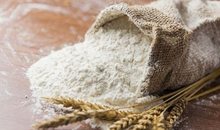


Israel agrees to 60-day ceasefire in Gaza, but many unanswered questions remain
2025-07-02 18:35:27
The weather in Germany is going "crazy", temperatures reach 40°C
2025-07-02 18:22:21

"Fast & Furious" in the former Block, police chase an Audi Q8, 4 cars collide
2025-07-02 17:59:25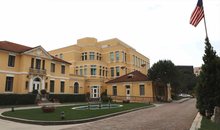
"Birth on a tourist visa? US Embassy warns Albanians: This is prohibited!"
2025-07-02 17:48:16


BIRN: Fier recount reveals vote trafficking within open political party lists
2025-07-02 16:57:19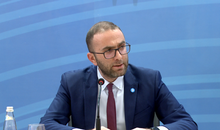

CEO and former director of 'Bankers Petroleum' arrested in Fier
2025-07-02 16:40:42
Car hits two tourists on a motorcycle in Fushe Arrëz, one of them dies
2025-07-02 16:33:23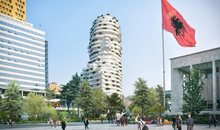



Fire at the Elbasan Incinerator Landfill, Prosecution Launches Investigations
2025-07-02 15:34:54
What you need to know if you travel to a country with active volcanoes
2025-07-02 15:33:03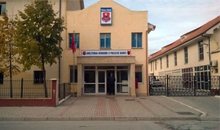



EU proposes 90% reduction in greenhouse gases by 2040
2025-07-02 14:50:23
Europe is burning from the heat / Italy and France are on maximum alert
2025-07-02 14:36:52

Moscow's contradictory statements: Is the friendship with Vučić breaking down?
2025-07-02 14:21:05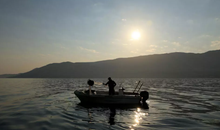
'I lost my battle': Sea warming is killing fishing in Albania
2025-07-02 14:08:35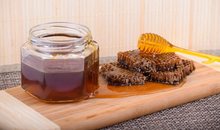
Sekretet kimike që ndihmojnë në mbajtjen e mjaltit të freskët për kaq gjatë
2025-07-02 14:01:26
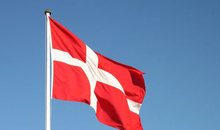
Denmark makes historic decision to make military service mandatory for women
2025-07-02 13:44:33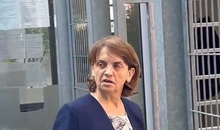
The appeal of the GJKKO leaves former judge Pajtime Fetahu in prison
2025-07-02 13:30:20
Productivity losses could reduce GDP by 1.3% as a result of extreme heat
2025-07-02 13:21:04
He abused his minor daughter, Zamir Meta is left in prison
2025-07-02 13:04:04

Waste burning in Elbasan, Alizoti: They are poisoning people and stealing money
2025-07-02 12:48:39
Civil disobedience continues in Serbia, dozens of people detained
2025-07-02 12:40:32
Rama's government was born under the sign of garbage and will end like this
2025-07-02 12:28:09
Water prices increase in the municipalities of the Elbasan region
2025-07-02 12:13:38
Civil disobedience continues in Serbia, what is happening in Belgrade?
2025-07-02 12:07:44
Serious accident in Thumanë, one dead, 3 injured
2025-07-02 11:54:42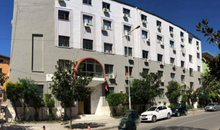
Durrës Court suspends the director of Pre-University Education from duty
2025-07-02 11:49:27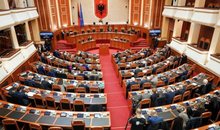
Plenary session on Thursday, what is expected to be discussed
2025-07-02 11:36:43
Europe is burning from heat waves/ What is the 'thermal dome' phenomenon?
2025-07-02 11:26:25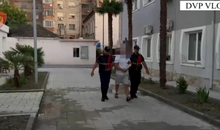
Wanted by Italy for murder, 45-year-old arrested in Vlora
2025-07-02 11:19:31
Fire situation, 28 fires reported in 24 hours, 2 still active
2025-07-02 11:13:20
"Buka" file, preliminary hearing for Ahmetaj postponed to July 17
2025-07-02 11:03:30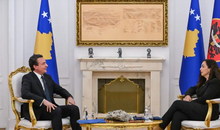
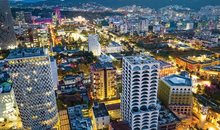

Baçi: Belinda Balluku and Ceno Klosi, the most dangerous "gangs" in Fier
2025-07-02 10:32:09
Zamir Meta, suspected of sexually abusing his daughter, arrives in court
2025-07-02 10:21:33

Trump: Israel has agreed to a 60-day ceasefire in Gaza
2025-07-02 10:01:55
Fire continues at Elbasan landfill
2025-07-02 09:51:13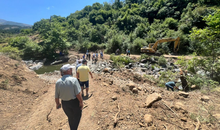

Dates to note during July, important events will occur
2025-07-02 09:31:45
The hearing for Jorgo Goro's claim is postponed
2025-07-02 09:24:19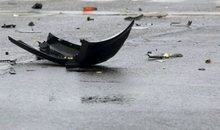

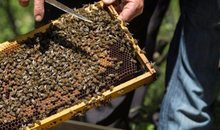

Foreign exchange, the rate at which foreign currencies are sold and bought
2025-07-02 08:42:31

52% of pensioners did not receive full pension in 2024
2025-07-02 08:27:18
Horoscope, what do the stars have in store for you today?
2025-07-02 08:13:36
Hot weather, Wednesday brings high temperatures
2025-07-02 07:59:16
Morning Post/ In 2 lines: What mattered yesterday in Albania
2025-07-02 07:46:15
Heatwave sweeps across Europe, Spain and England record hottest June ever
2025-07-01 22:57:41






Golem and Qerret without water at the peak of the tourist season
2025-07-01 21:09:32

Euractiv: Italy-Albania migrant deal faces biggest legal challenge yet
2025-07-01 20:53:38
BIRN: Brataj and Fevziu victims of a 'deepfake' on Facebook
2025-07-01 20:44:00

Vlora by-pass, work delays and cost increases
2025-07-01 20:24:29



Milan are expected to give up on the transfer of Granit Xhaka
2025-07-01 19:41:25

